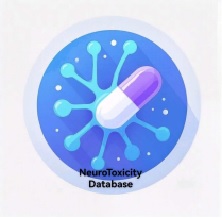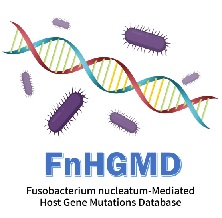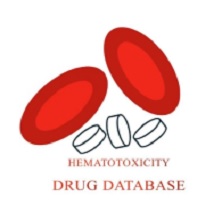
Neurotoxicity refers to the damage caused by drugs or other chemical substances to the structure and function of the nervous system, leading to reversible or irreversible impairment of neurons, glial cells, or neural signaling pathways. This toxicity may affect the central nervous system (brain and spinal cord) or the peripheral nervous system, resulting in a range of consequences from mild dysfunction to severe disorders or even death. Many drugs, such as chemotherapeutic agents, certain antibiotics, and illicit substances, can cause adverse effects including memory impairment, attention deficits, tremors, ataxia, anxiety, and depression. The Neurotoxicity Database System serves as a powerful tool for research on drugs and their neurotoxic effects. It contains information on 396 drugs known to induce nervous system-related adverse reactions, systematically documenting their chemical names, CAS registry numbers, drug categories, clinical indications, and potential side effects. Additionally, it describes the mechanisms of neurotoxicity, which are complex and may involve glutamate excitotoxicity, oxidative stress, mitochondrial dysfunction, and more. This database is continuously updated and serves as a valuable resource for healthcare professionals, helping them understand the mechanisms of neurotoxic drugs and reduce the occurrence of drug-induced neurological adverse effects. By providing early warnings, it assists clinicians in making informed decisions, enabling early detection and intervention to ensure patient safety.

Fusobacterium nucleatum , a Gram-negative anaerobic bacterium commonly found in the oral cavity and the intestinal tract, has been confirmed to be closely related to the development of various malignant tumors such as colorectal cancer in recent years. F. nucleatum can accelerate tumor progression by regulating the host immune microenvironment, inducing chronic inflammation, and promoting gene mutations. It plays a key role in tumor metastasis and the formation of drug resistance. To deeply study the related gene mutations, this database is based on literature mining and multi-source data integration, focusing on the host gene mutation information related to F. nucleatum , and has included 456 relevant mutation entries, covering genomic locations of the mutated genes, mutation types, gene annotations, and references, etc. It provides important data support for clarifying the information of microbial-host genome interaction.

Hematotoxicity refers to the harmful effects of drugs or other chemical substances on the blood system, primarily manifested as inhibition of bone marrow hematopoietic function and abnormal changes in the number or function of blood cells. The most prominent manifestation is drug-induced adverse reactions related to the blood system. Many drugs, such as certain antibiotics, antiepileptic drugs, and proton pump inhibitors, may lead to adverse reactions like thrombocytopenia, granulocytopenia, and aplastic anemia. The Hematotoxicity Database System is a powerful support for research on drugs and their hematotoxicity. It contains 334 drugs that can cause adverse reactions related to the blood system. The system records the chemical names, CAS numbers, drug types, clinical indications, and possible adverse reactions of these drugs and describes the hematotoxicity mechanisms of the drugs. These mechanisms are complex and include bone marrow suppression, immune-mediated destruction of blood cells, and metabolic interference, among others. The database is continuously updated and collects data. To some extent, it provides healthcare professionals with data resources on hematotoxicity drugs, helps them understand the relevant mechanisms, reduces the occurrence of drug-induced adverse reactions in the blood system, and serves as a warning to clinicians. When using these drugs, clinicians should closely monitor patients' blood indicators to achieve early detection and intervention, thereby ensuring patient safety.